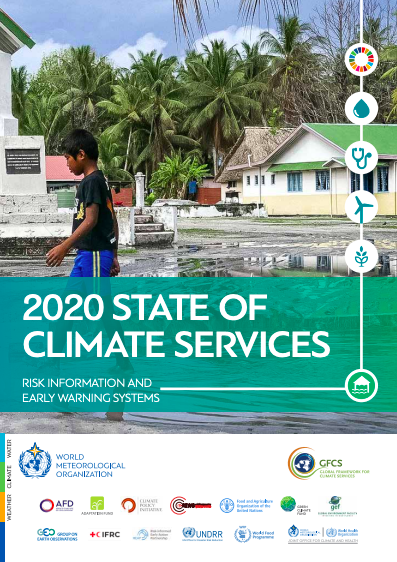State of Climate Services 2020 Report: Move from Early Warnings to Early Action
Organization: World Meteorological Organization (WMO)
Year: 2020

Between 1970 and 2019, 79% of disasters worldwide involved weather, water, and climate-related hazards. These disasters accounted for 56% of deaths and 75% of economic losses from disasters associated with natural hazards reported during that period. As climate change continues to threaten human lives, ecosystems and economies, risk information and early warning systems (EWS) are increasingly seen as key for reducing these impacts. The majority of countries, including 88% of least developed countries and small island states, that submitted their Nationally Determined Contributions (NDCs) to UNFCCC have identified EWS as a “top priority”.
This latest WMO report highlights progress made in EWS capacity – and identifies where and how governments can invest in effective EWS to strengthen countries’ resilience to multiple weather, water and climate-related hazards. Being prepared and able to react at the right time, in the right place, can save many lives and protect the livelihoods of communities everywhere.

